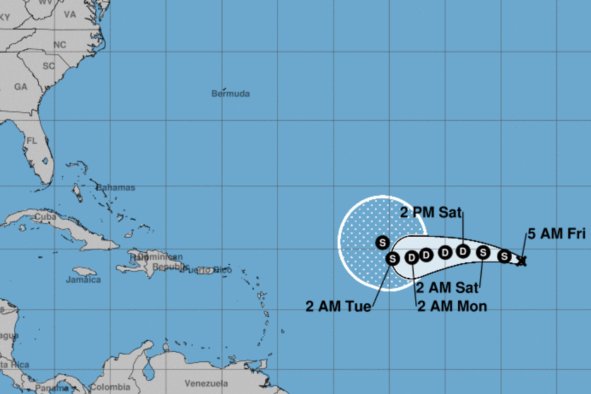Multiple locations across the U.S. saw record-breaking temperatures this summer as heat waves blanketed the country.
National Oceanic and Atmospheric Administration maps reveal that several cities and states across the Southwest, Southeast, East Coast, and Northeast had their hottest summers on record between June and August.
These sweltering temperatures resulted in the U.S. as a whole seeing its fourth-hottest summer ever.
Between June and August, Phoenix had an average temperature of 98.9 degrees F, Fort Lauderdale, Florida, averaged 84.6 degrees F, Grand Junction, Colorado, averaged 80.1 degrees F, and Dulles, Virginia, averaged 78.1 degrees F. Other record-breaking averages included Hartford, Connecticut ,at 75.5 degrees F and Caribou, Maine, at 67.3 degrees F.
"For meteorological summer, the average temperature for the contiguous U.S. was 73.8 degrees F—2.5 degrees above average— ranking as the nation's fourth-hottest summer on record. Arizona, California, Florida, Maine and New Hampshire all sizzled through their warmest summer on record," the NOAA explained.
There were several other climate anomalies this summer across the U.S., including a record high temperature of 89 degrees F being recorded at Deadhorse Airport in Alaska, parts of West Virginia and Ohio experiencing "exceptional" drought for the first time in U.S. Drought Monitor history, severe storms in Michigan, Hurricanes Hone and Debby slamming into Hawaii and the Southeast, respectively, and Palisades Tahoe in California seeing its first August snowfall since 2004.
Across the Northern Hemisphere, 2024 saw the hottest summer on record, at 2.74 degrees F above average. In the Southern Hemisphere, the warmest winter on record was also recorded, at 1.73 degrees F above average.
Additionally, the average U.S. temperature between January and August was 3 degrees F above average at 56.9 degrees F, which is the second-warmest year-to-date average on record. January-August temperature records were broken for New Hampshire, Vermont, and West Virginia.
August in the U.S. was tied with August 1998 for the 15th warmest on record at 74 degrees F, 1.9 F above the monthly average. Florida had its second-warmest August since records began, with New Mexico and Texas each seeing their third-warmest August.
"There's now so much evidence pointing to the fact that our climate is warming, if you want to deny climate change, you might as well claim the earth is flat too," Dr. Friederike Otto, a senior lecturer in climate science at the Grantham Institute for Climate Change and the Environment, Imperial College London, said in a statement.
"Billions of measurements from weather stations, satellites, ships, and planes point to the very basic fact that our planet is heating up at a dangerous pace."
"Many heat deaths are the elderly with existing health conditions who die prematurely when their bodies cannot cope with high temperatures. However, heat can also be deadly for children and outdoor workers. The heat deaths of 21 people in a single day in Morocco during July provided a shocking illustration of just how deadly extreme heat can be," she said.
These unprecedented temperatures came as the Earth as a whole saw its hottest August in the NOAA's 175-year climate record, marking the 15th month in a row of record-breaking heat.
"The average global land and ocean surface temperature in August was 2.29 degrees F (1.27 degrees C) above the 20th-century average of 60.1 degrees F (15.6 degrees C), ranking as the warmest August in the global climate record," the NOAA said.
There is a 97 percent chance that 2024 will be world's warmest year on record, according to the NOAA's National Centers for Environmental Information Global Annual Temperature Outlook.
Do you have a tip on a science story that Newsweek should be covering? Do you have a question about extreme temperatures? Let us know via science@newsweek.com.
Disclaimer: The copyright of this article belongs to the original author. Reposting this article is solely for the purpose of information dissemination and does not constitute any investment advice. If there is any infringement, please contact us immediately. We will make corrections or deletions as necessary. Thank you.



